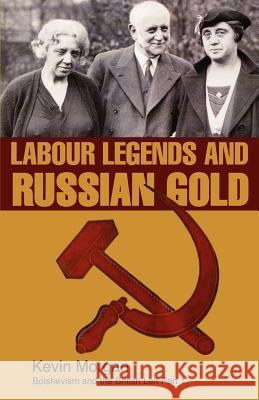Labour Legends and Russian Gold: Bolshevism and the British Left Part One » książka
Labour Legends and Russian Gold: Bolshevism and the British Left Part One
ISBN-13: 9781905007257 / Angielski / Miękka / 2007 / 315 str.
This is the first book in a three-volume series which looks at the relationship between different sections of the British left and Bolshevism in the first half of the twentieth century. The main focus of this first book is on funding and political resources Morgan goes far beyond the question of Russian gold, to dig beneath a host of myths and misconceptions. He shows that Labour's parliamentary advance was itself inconceivable solely on the basis of the workers' and trade union 'pennies' with which it is usually identified. In addition to the virtual market that developed in Labour's parliamentary nominations, there was almost always a need to cultivate private benefactors - not excluding Russian ones. Thus, as Morgan shows, George Lansbury drew on a wide variety of financial sponsors to create the space both for his own political career and for Labour's daily newspaper, the Daily Herald. As for the communist party itself, Russian subsidies often gave rise to fierce internal conflict and controversy: it was certainly regarded as mixed blessing by many. Kevin Morgan has uncovered some fascinating new material on this period of left history, and through his insightful analysis a much more complex picture than hitherto emerges, both of Labour-communist relations and those between the CPGB and the Comintern. Labour Legends and Russian Gold is the Part 1in a three-volume series, Bolshevism and the British Left, which examines attitudes to Soviet Russia as a way of opening up broader questions about the character of the British left between the 1890s and the 1940s. Part 2 is The Webbs and Soviet Communism, Part 3 is due to be published in 2012











